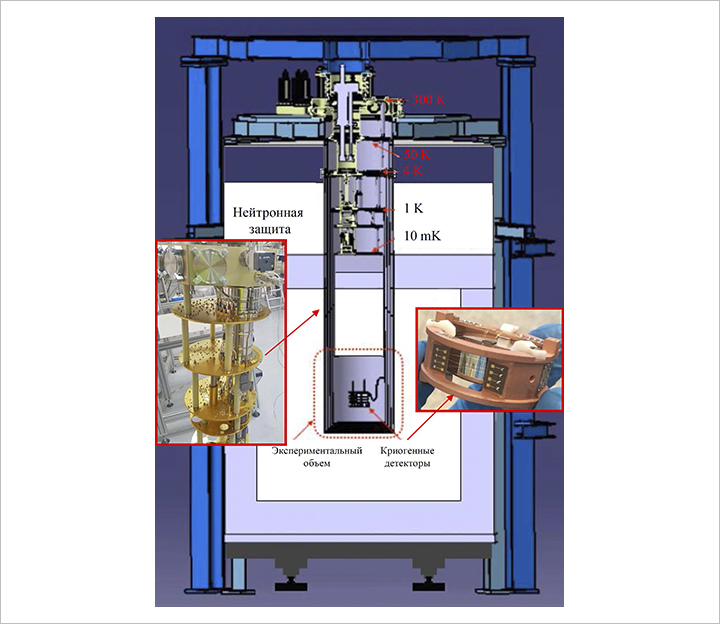JINR creating neutrino detectors for Novovoronezh Nuclear Power Plant
Media, 20 April 2022
DLNP JINR scientists together with colleagues from Voronezh State University and the Department of Nuclear Safety and Security, as well as the Department of Thermal Automation and Measurements of the Novovoronezh Nuclear Power Plant (NNPP) have completed the preparatory stage of the project Ricochet on studying the properties of neutrino , which will be implemented in the territory of the NPP.
Neutrinos continue to serve as a source of scientific discoveries in nuclear physics, particle physics, and cosmology. Physicists suggest that further experimental studies of neutrinos will help to go beyond the Standard Model, which should be expanded according to research in the fields of cosmology and particle physics. Ricochet is one of the neutrino experiments of a new generation, which is being carried out with active participation of JINR. It is aimed at high precision measurement of neutrino interactions and their properties based on the coherent scattering study of reactor antineutrinos on nuclei.
“We expect that the influence of new physics will lead to spectral distortions in the fields of recoil nuclei energies induced by the coherent neutrino scattering below 100 eV,” Leader of the Project from JINR, Head of the DLNP Experimental Department of Nuclear Spectroscopy and Radiochemistry Evgeny Yakushev says. “Ricochet bolometers are able to explore this energy region if measurements are made at a distance of about 20 metres from a commercial power reactor. A promising place to conduct such a study is the VVER-1200 reactors of the NNPP .”
Evgeny Yakushev said that a huge amount of preliminary work was necessary to achieve the required precision accuracy of measurements. So, the first phase of the experiment will take place at the ILL research reactor in Grenoble, France. It is planned to begin the data collection there in 2024. During this phase, it is planned to create and put into operation new-level detectors based on unique neutrino detection technologies. Together with the latest detectors, it is necessary for the experiment to collect a huge amount of information about both the neutrino flux and radioactive backgrounds connected with cosmic irradiation and residual natural radioactivity at the measurement location. “At the next stage of work, we have planned to install highly sensitive detectors at the NPP that will control the neutrino flux, as well as beta, gamma, and neutron backgrounds. We are going to create a 3D analyser of the background of cosmic irradiation as well,” Evgeny Yakushev said.
 Scheme of main part of Ricochet facility
Scheme of main part of Ricochet facility
Preliminary measurements at the NNPP made within two years have demonstrated that the background conditions at the innovative generating unit No. 6 of the NNPP are best suited for the placement of the future complex of neutrino detectors. Thus, structural materials of the water-water power reactor VVER-1200 provide a good protection from cosmic irradiation. The neutrino flux emitted by the reactor reaches 600 quintillion particles per second.
The history of the neutrino physics development is inseparably linked to reactors. The JINR’s expertise in conducting experiments with neutrinos at reactors is recognised as one of the leading in the world. In particular, with the participation of JINR specialists, fundamental world-class results were obtained in experiments at the Kalinin NPP.
Along with the tasks of fundamental physics, project participants established the goal of future staff training both in the fields of physical research and for solving applied problems. Experiments at the Novovoronezh NPP will be conducted in cooperation with the Department of Nuclear Physics of Voronezh State University. Thus, the creation of world-class experimental facilities at the Novovoronezh NPP will become the basis for training highly qualified scientific staff both for Rosatom and JINR.
